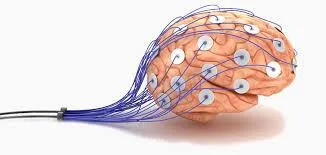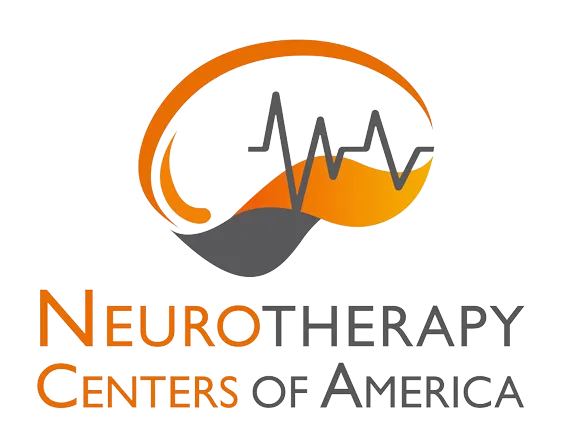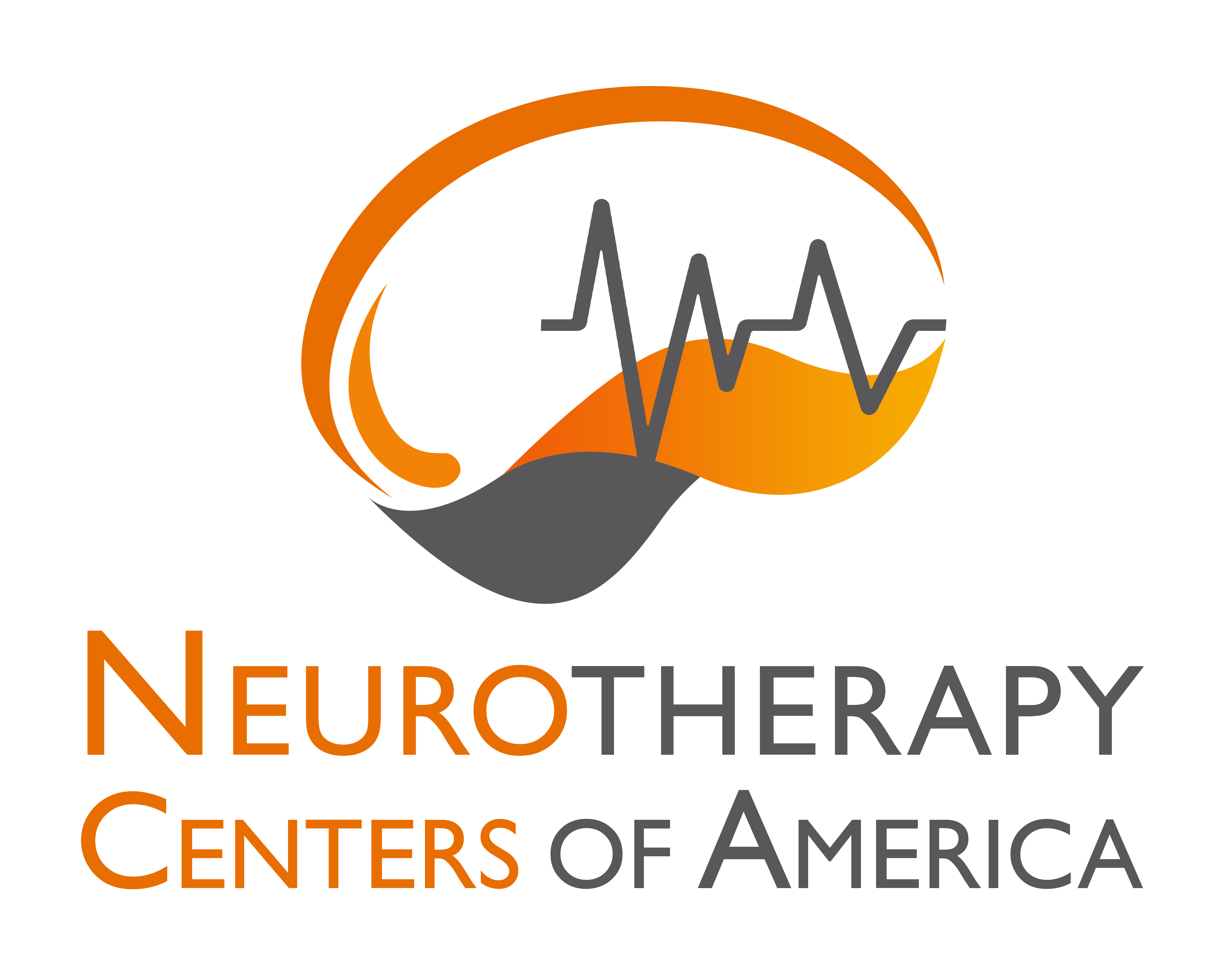
All Neurofeedback is Not the Same
“Biofeedback and neurofeedback offer a wide range of approaches to help the client suffering from any one of a number of consequences of stress and autonomic and physiological dysregulation."
Stephen Sideroff, Ph.D.
Clinical Psychologist
Assistant Professor
Department of Psychiatry & Biobehavioral Sciences UCLA
What is Neurofeedback Therapy?

Image: The Neurotherapy Feedback Loop
Neurotherapy, Neurofeedback (NFB), Biofeedback, or Brainwave Training is an alternative to medicinal treatment and utilizes real-time displays of electroencephalography (EEG) to highlight brain activity. By recording brain wave activity with sensors placed on the head, we can collect details about why someone might be experiencing symptoms based on what is measured in the brain.
What is the "Best" Neurotherapy?
Neurofeedback Therapy or "NFT" offers a variety of systems for brain training. While most of them may be beneficial, they certainly are not all comparable. NFT can range from self-guided training with a simple device that measures basic brainwave activity and responds with only Alpha being trained, for instance, to heavily monitored, multi-channel deep brain training. I hope to explain some of the programs and devices that are available, and how they differ.
1. Brain Sensing Headbands

There are a variety of brainwave sensing headbands on the market that primarily focus on relaxation and meditation for better sleep and grounding. These devices use sensors accross the forehead to measure certain brainwaves and rewards the relaxed state with peaceful music, for instance.
There is one more clinical headband on the market that relies more on a clinician to do a mini-EEG assessment and create unique protocols for each client. There is an electrode fitting that can be attached to the device in order to target more specific areas of the brain. These are a bit more advanced in targeting a variety of issues, such as ADHD, and are more likely to have longer lasting results. This type of device offers real-time monitoring for the clinician as well.
2. "Non-Linear" Neurofeedback

Some programs offer "self-guided" NFT as "advanced technology" or "second generation" that doesn't require brain maps and unique protocols because it is simply...so advanced! They use terms that elude to the product being superior to outdated systems that require brain maps and protocols, but these are simply marketing techniques. There is no such term as "dynamical" or "non-linear" neurofeedback and there are no clinical studies supporting this idea.
While this type of NFT may be comparable with the self-monitored brain sensing headbands described above, the chances of addressing major cognitive and mental health conditions long-term are unlikely. Again, these devices are likely to make the user feel better and more relaxed, especially with anxiety and ADHD, but the need for brain mapping and unique protocols is essential when addressing conditions of the brain and obtaining lasting results.
3. Traditional Neurofeedback

Traditional, or "Standard" NFT requires a brain map to be conducted by collecting measurements of brainwave activity through a qEEG (quantitative electroencephalogram). While there are several versions of the qEEG, such as 12 point or 24 point, depending on how many sites are being measured, they all aim at collecting a snapshot of the brain's connectivity, underarousal and/or overarousal. Once collected, these results are analyzed along with various questionnaires to determine the proper protocols to train the brain.
In this type of NFT, between 3 and 5 electrodes (or an EEG cap, in some cases) and 1-2 earclips are place strategically on the scalp to measure real-time data to be compared against the protocols set for the client. This type of NFT is what nearly all clinical studies are based upon and through which efficacy has been proven.
How to Choose a NF Provider
1. Know your symptoms and your goals. Make sure the provider you speak to is focused on you and your concerns, and answers all of your questions.
2. Ask your provider which type of NFT device they use and if a brain map is required. If you are looking for more significant results or have a more substantial history of mental, behavioral or cognitive issues, stick with traditional NFT.
3. Make sure your provider explains that 20 sessions is the minimum for obtaining results and 30 sessions is the standard training time for ensuring more lasting results!
4. Ask if Neurotherapy or NFT is their primary focus as many providers do neurotherapy "on the side", while primarily focusing on other modalities.
What is the average cost of NFT?
Traditional NFT ranges from $2800 to upwards of $6000, depending on the program, the regional location and the provider. Brain mapping can range from $150 to $695, with little variation in quality.
Get Started With Neurotherapy
Virtual Options
Contact us to schedule a FREE consultation and find out how you can qualify for 3 FREE cognitive/behavioral and metabolic assessments.
Contact us at https://www.neurotherapycentersusa.com/contact
Visit our website at https://www.neurotherapycentersusa.com
Visit our Facebook Page https://www.facebook.com/neurocentersusa
*The information in this blog is intended for educational purposes only. The opinions expressed in this blog are the opinions of the blog owner, and any other opinions in quotations are the opinion of the sited reference.
"Copyright Disclaimer under Section 107 of the copyright act 1976, allowance is made for fair use for purposes such as criticism, comment, news reporting, scholarship, and research. Fair use is a use permitted by copyright statute that might otherwise be infringing. Non-profit, educational or personal use tips the balance in favour of fair use."
Neurotherapy Centers of America 2022

All Neurofeedback is Not the Same
“Biofeedback and neurofeedback offer a wide range of approaches to help the client suffering from any one of a number of consequences of stress and autonomic and physiological dysregulation."
Stephen Sideroff, Ph.D.
Clinical Psychologist
Assistant Professor
Department of Psychiatry & Biobehavioral Sciences UCLA
What is Neurofeedback Therapy?

Image: The Neurotherapy Feedback Loop
Neurotherapy, Neurofeedback (NFB), Biofeedback, or Brainwave Training is an alternative to medicinal treatment and utilizes real-time displays of electroencephalography (EEG) to highlight brain activity. By recording brain wave activity with sensors placed on the head, we can collect details about why someone might be experiencing symptoms based on what is measured in the brain.
What is the "Best" Neurotherapy?
Neurofeedback Therapy or "NFT" offers a variety of systems for brain training. While most of them may be beneficial, they certainly are not all comparable. NFT can range from self-guided training with a simple device that measures basic brainwave activity and responds with only Alpha being trained, for instance, to heavily monitored, multi-channel deep brain training. I hope to explain some of the programs and devices that are available, and how they differ.
1. Brain Sensing Headbands

There are a variety of brainwave sensing headbands on the market that primarily focus on relaxation and meditation for better sleep and grounding. These devices use sensors accross the forehead to measure certain brainwaves and rewards the relaxed state with peaceful music, for instance.
There is one more clinical headband on the market that relies more on a clinician to do a mini-EEG assessment and create unique protocols for each client. There is an electrode fitting that can be attached to the device in order to target more specific areas of the brain. These are a bit more advanced in targeting a variety of issues, such as ADHD, and are more likely to have longer lasting results. This type of device offers real-time monitoring for the clinician as well.
2. "Non-Linear" Neurofeedback

Some programs offer "self-guided" NFT as "advanced technology" or "second generation" that doesn't require brain maps and unique protocols because it is simply...so advanced! They use terms that elude to the product being superior to outdated systems that require brain maps and protocols, but these are simply marketing techniques. There is no such term as "dynamical" or "non-linear" neurofeedback and there are no clinical studies supporting this idea.
While this type of NFT may be comparable with the self-monitored brain sensing headbands described above, the chances of addressing major cognitive and mental health conditions long-term are unlikely. Again, these devices are likely to make the user feel better and more relaxed, especially with anxiety and ADHD, but the need for brain mapping and unique protocols is essential when addressing conditions of the brain and obtaining lasting results.
3. Traditional Neurofeedback

Traditional, or "Standard" NFT requires a brain map to be conducted by collecting measurements of brainwave activity through a qEEG (quantitative electroencephalogram). While there are several versions of the qEEG, such as 12 point or 24 point, depending on how many sites are being measured, they all aim at collecting a snapshot of the brain's connectivity, underarousal and/or overarousal. Once collected, these results are analyzed along with various questionnaires to determine the proper protocols to train the brain.
In this type of NFT, between 3 and 5 electrodes (or an EEG cap, in some cases) and 1-2 earclips are place strategically on the scalp to measure real-time data to be compared against the protocols set for the client. This type of NFT is what nearly all clinical studies are based upon and through which efficacy has been proven.
How to Choose a NF Provider
1. Know your symptoms and your goals. Make sure the provider you speak to is focused on you and your concerns, and answers all of your questions.
2. Ask your provider which type of NFT device they use and if a brain map is required. If you are looking for more significant results or have a more substantial history of mental, behavioral or cognitive issues, stick with traditional NFT.
3. Make sure your provider explains that 20 sessions is the minimum for obtaining results and 30 sessions is the standard training time for ensuring more lasting results!
4. Ask if Neurotherapy or NFT is their primary focus as many providers do neurotherapy "on the side", while primarily focusing on other modalities.
What is the average cost of NFT?
Traditional NFT ranges from $2800 to upwards of $6000, depending on the program, the regional location and the provider. Brain mapping can range from $150 to $695, with little variation in quality.
Get Started With Neurotherapy
Virtual Options
Contact us to schedule a FREE consultation and find out how you can qualify for 3 FREE cognitive/behavioral and metabolic assessments.
Contact us at https://www.neurotherapycentersusa.com/contact
Visit our website at https://www.neurotherapycentersusa.com
Visit our Facebook Page https://www.facebook.com/neurocentersusa
*The information in this blog is intended for educational purposes only. The opinions expressed in this blog are the opinions of the blog owner, and any other opinions in quotations are the opinion of the sited reference.
"Copyright Disclaimer under Section 107 of the copyright act 1976, allowance is made for fair use for purposes such as criticism, comment, news reporting, scholarship, and research. Fair use is a use permitted by copyright statute that might otherwise be infringing. Non-profit, educational or personal use tips the balance in favour of fair use."
Neurotherapy Centers of America 2022

Download Our Free eBook Now
©2025 Neurotherapy Centers Of America.
All rights reserved.
*We offer a drug-free, non-invasive approach to alleviate symptoms associated with: ADHD, Autism Spectrum Disorders, Anxiety, Insomnia, Learning Disorders, Memory Loss, Fibromyalgia, Migraine and more..
Our advertising features actual client testimonials. Individual results may vary.
©2025 Neurotherapy Centers Of America. All rights reserved.
*We offer a drug-free, non-invasive approach to alleviate symptoms associated with: ADHD, Autism Spectrum Disorders, Anxiety, Insomnia, Learning Disorders, Memory Loss, Fibromyalgia, Migraine and more..

